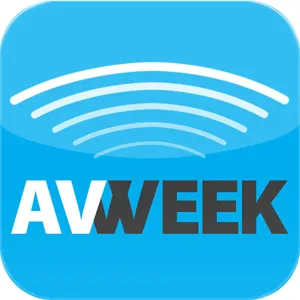Britain's First Astronaut

Explore "apollo 11" with insightful episodes like "Britain's First Astronaut", "Die Rüttelprobe mit dem Zufallsschweden", "Episode 45 - Die drei Päpste", "Charles Duke, Astronaut/Apollo 11 CAPCOM" and "Uncut Rüdiger feeling the Bern" from podcasts like ""Space Boffins, from the Naked Scientists", "Gala Be Need Inn - Die Quizshow", "Bewegtbildbanausen", "Frank Buckley Interviews" and "Brennerpass"" and more!




51 years ago on July 20th, 1969, Neil Armstrong became the first man on the moon. He was the first of only 12 human beings to ever step on the surface of the moon. Among those 12 men is Charles Duke. Duke was an astronaut on Apollo 16, and the youngest person to ever walk on the lunar surface at the age of 36. During the first mission to the moon, Apollo 11, Charlie Duke was the voice of Houston's Mission Control, serving as CAPCOM. His was the first voice from earth to reach the moon after the Eagle had landed at Tranquility Base. Charlie shares the tense moments leading up to that first moon landing, and also recalls his own experiences on the lunar surface for Apollo 16.
See Privacy Policy at https://art19.com/privacy and California Privacy Notice at https://art19.com/privacy#do-not-sell-my-info.


Since the early days of cinema, the moon has been an enchanting muse. The science of filmmaking was invented by the Lumière brothers, who débuted their cinématographe camera to astonished audiences in 1896. Yet it was their fellow Frenchman Georges Méliès, and his experimentations with short filmmaking, which gave rise to the notion of cinema as art.
Méliès’ 1902 Le Voyage dans la Lune (Journey into the Moon), with its iconic image of a moon with a human face, captures the essence of the early days of cinema; Voyage was both a technological marvel and an artistic achievement.
The film camera and the moon have shared a storied history ever since, from the 1969 footage of the moon landing captured at the ACT’s Honeysuckle Creek to contemporary science fiction and beyond. Reading the history of cinema through lunar motifs offers a new way of understanding the entangled relationships between science and culture, technology and art, the real and the imagined, our desire to control nature and our eternal fascination with the unknown.
In this episode Dr Gemma King, Lecturer in French Studies and French cinema specialist in the School of Literature, Languages and Linguistics, talks about the lunar origins of cinema and Georges Méliès’ ground-breaking film.

"Topper" Birney recounts what it was like being a teenager at Fort Bliss when the German Rocket team came to America.
See Privacy Policy at https://art19.com/privacy and California Privacy Notice at https://art19.com/privacy#do-not-sell-my-info.

A firsthand account of the immigration experience for German families of the Wernher von Braun rocket team as they moved to Fort Bliss, Texas. Recorded as part of a panel discussion in Huntsville, Alabama February 2019.
See Privacy Policy at https://art19.com/privacy and California Privacy Notice at https://art19.com/privacy#do-not-sell-my-info.

Conversation with Heidi Collier, chair of Huntsville's German-American Heritage Committee and daughter of one of the original German scientists on the Apollo 11 team.
See Privacy Policy at https://art19.com/privacy and California Privacy Notice at https://art19.com/privacy#do-not-sell-my-info.

Discussion about the changing role of women at Marshall Space Flight Center. Six women panelists share experiences and stories about culture, NASA and the future. Recorded April 2019.
See Privacy Policy at https://art19.com/privacy and California Privacy Notice at https://art19.com/privacy#do-not-sell-my-info.

Over 50 years ago, humankind went to the moon. This episode is all about how astronauts, space enthusiasts, fictional explorers and future Mars residents nourish themselves.
Kat Johnson shares lessons from Space Camp. Pauline Munch discovers the logistical challenges involved with growing enough food for an interplanetary journey. Oscar Belkin-Sessler walks us through history of astronaut food, Aleah Papes enlists former HRN host, Ashley Kosiak, to examine the role of food in science fiction. Hannah Conley finds out what Russia's golden quark is, and why it's so valuable in outer space.
This program is supported, in part, by public funds from the New York City Department of Cultural Affairs, in partnership with the City Council.
Meat + Three is powered by Simplecast.



Colonel Terry Virts is a former NASA astronaut, retired Air Force fighter and test pilot, and a filmmaker/photographer. Terry went into space twice--first in 2010 aboard the Space Shuttle Endeavor, and then in 2014-2015 for a 200-day flight aboard the International Space Station. In July, he participated in a record setting flight around the world over the North and South poles in a project called One More Orbit to commemorate the 50th anniversary of the Apollo 11 mission to the moon. During this podcast, Terry reveals what it's like to live in a space station, and he discusses the joys and dangers that accompany space flight and exploration. He also provides his perspective as an astronaut on the importance of the Apollo 11 mission.
See Privacy Policy at https://art19.com/privacy and California Privacy Notice at https://art19.com/privacy#do-not-sell-my-info.



A look back in time to the Apollo 11 moon mission.
RGV Rocket Club on Facebook: https://www.facebook.com/groups/804279504704564
RGV Rocket Club Website: https://www.rgvrockets.org/


Veteran news correspondents Jerry Hayes, Steve Johnson and Greg Screws share stories about the "impossible mission" of the moon landing, meeting notables like Neil Armstrong, and what the space program means to Huntsville. Recorded in WHNT studios July 2019.
See Privacy Policy at https://art19.com/privacy and California Privacy Notice at https://art19.com/privacy#do-not-sell-my-info.

Stay up to date
For any inquiries, please email us at hello@podcastworld.io